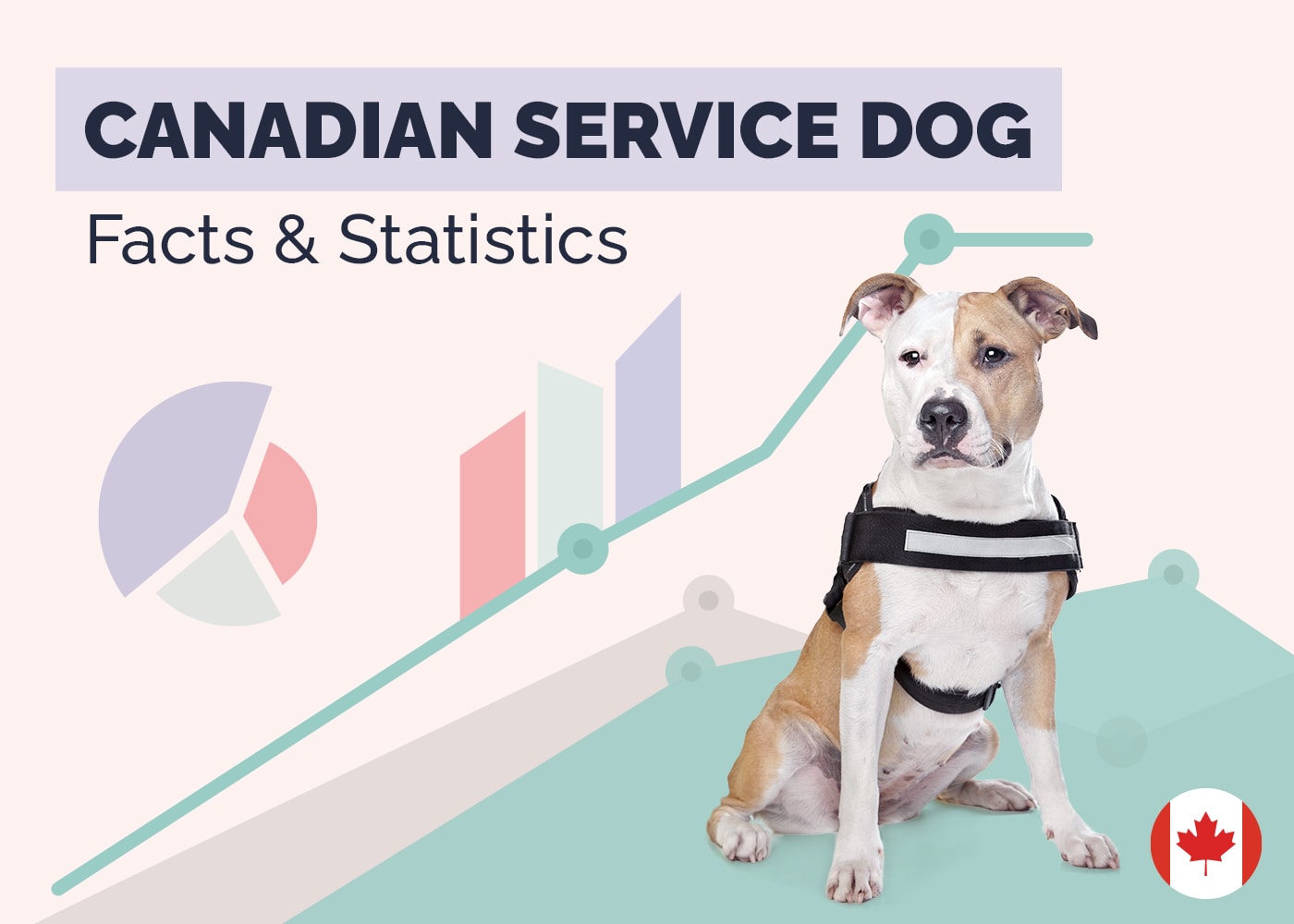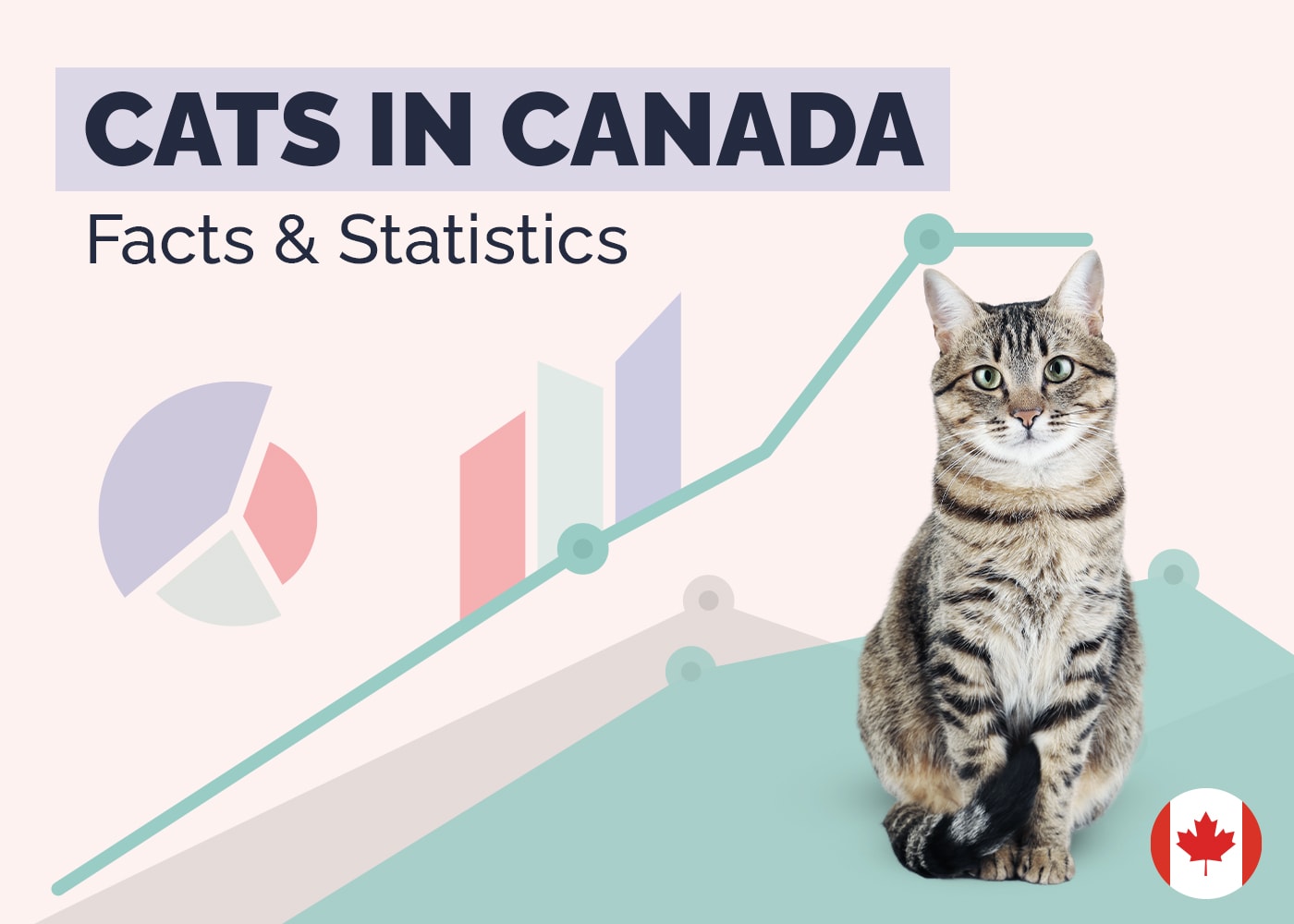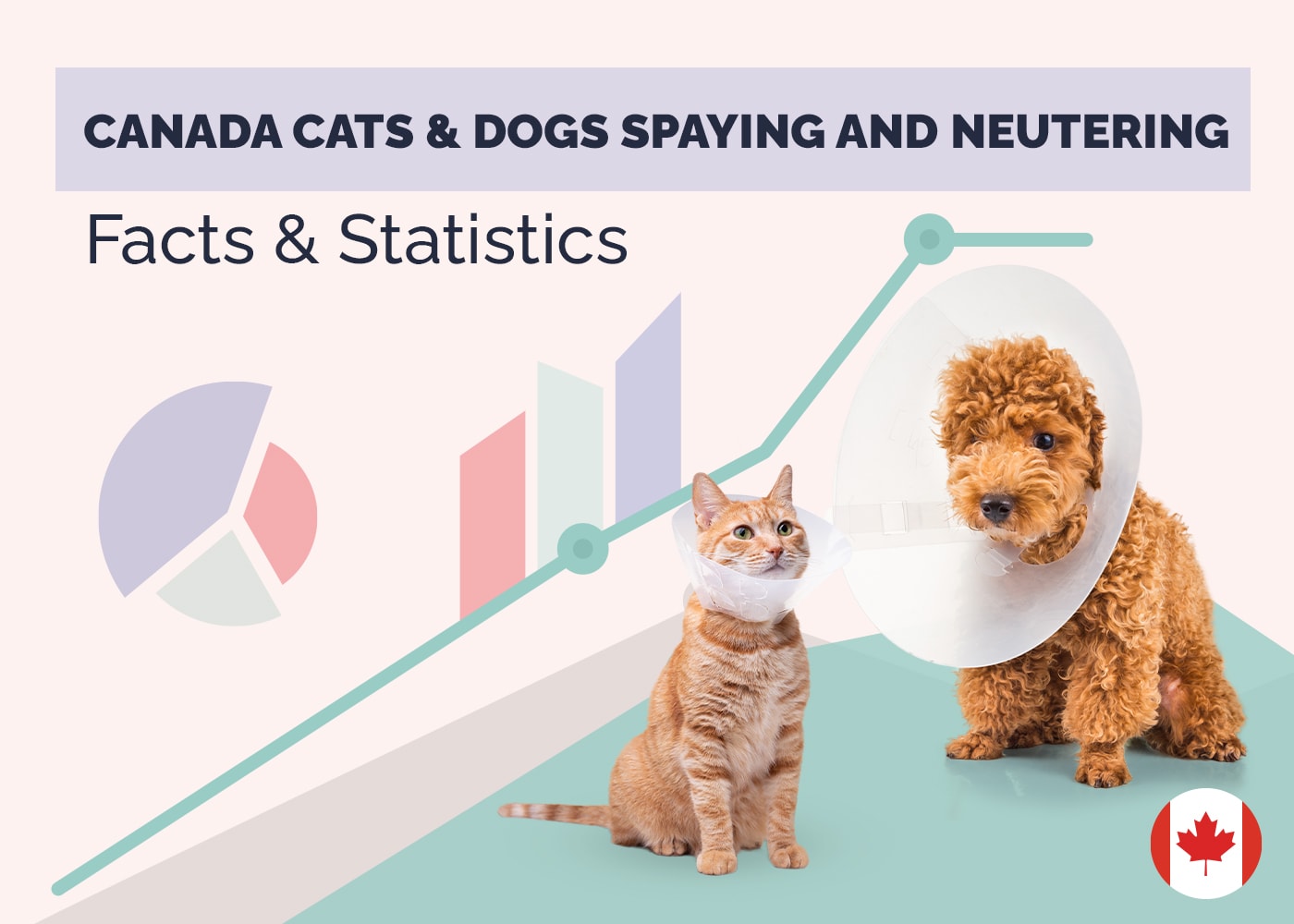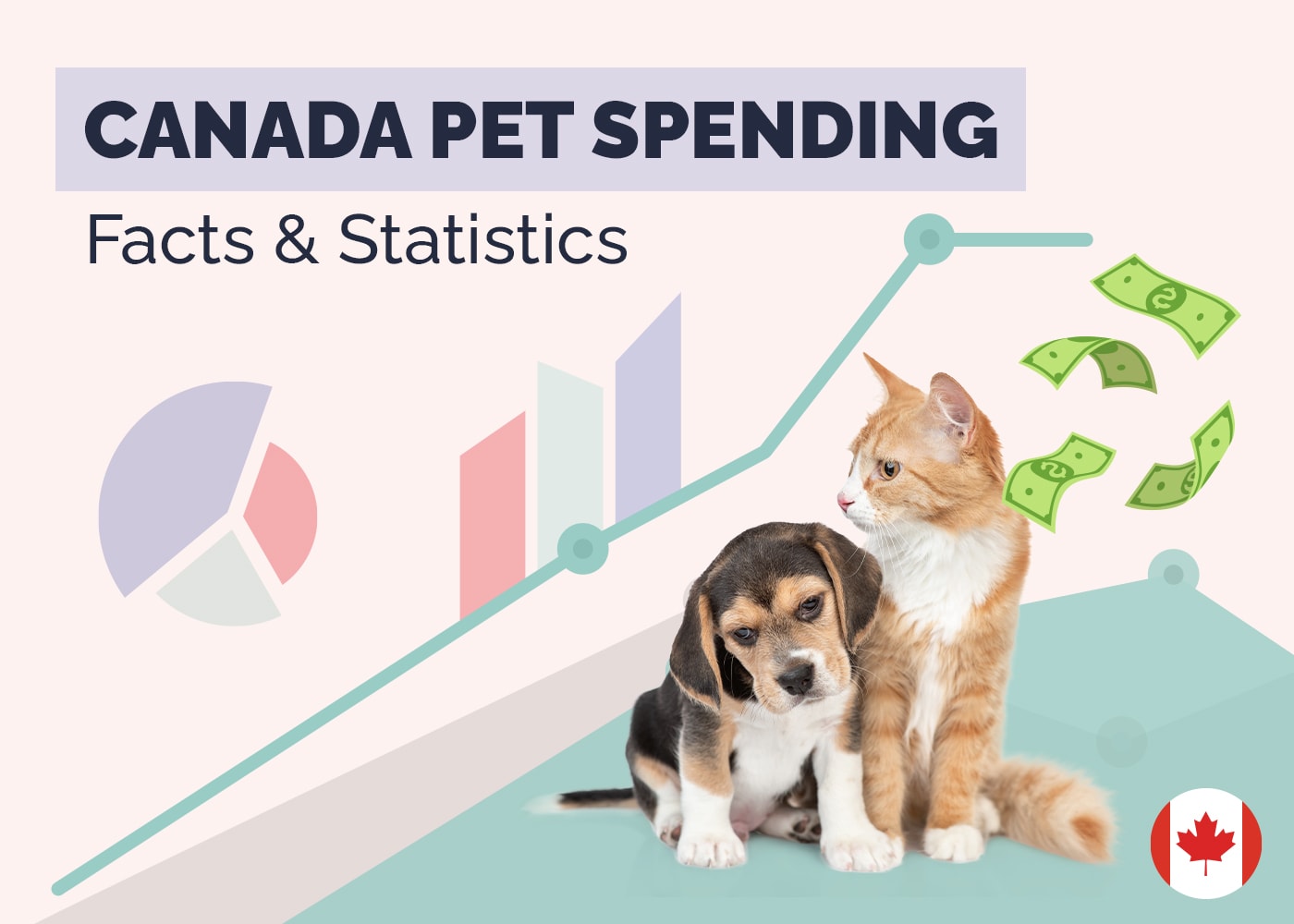15 Incredible Canadian Dog Statistics & Facts: 2024 Update
Updated on
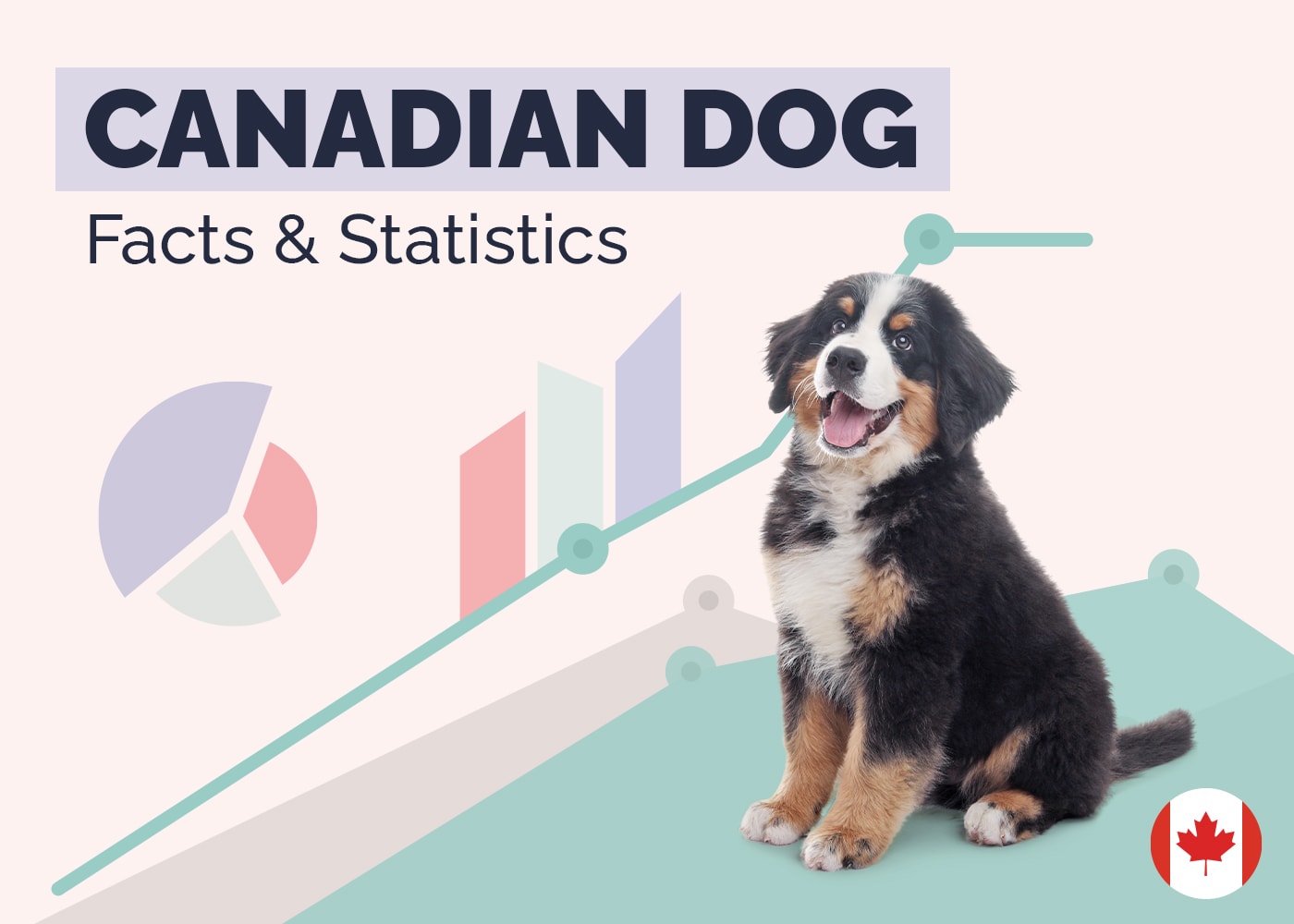
Click to Skip Ahead
Note: This article’s statistics come from third-party sources and do not represent the opinions of this website.
Dogs have been enormously popular pets for centuries, and their role in the home has changed over time. They are now considered family members—many people call themselves dog parents in addition to dog owners these days.
Dogs are undeniably popular in Canada, but if you’re wondering just how popular, you’ve come to the right place. We researched and pulled together a few facts and statistics to help answer any questions that you might have.
The 15 Canadian Dog Statistics
- There were 28.05 million pets in Canada in 2021, which is projected to be 28.51 million by 2025.
- The province with the most pets in 2021 was Quebec; 65% of the population are pet owners.
- 60% of Canadian households owned at least one dog or cat in 2022.
- There were 7.9 million pet dogs in Canada in 2022.
- Canadian dog owners spent an average of $3,999 in 2022.
- The estimated average cost of owning a puppy was $4,589 to $4,666 in 2020.
- 86% of dogs were seen by a veterinarian at least once in 2022.
- There were 1,265 vacancies for veterinarians in Canada in 2022.
- Three in five Canadians who have taken their dog to the vet feel that it’s too expensive.
- 71% of pet owners feel that their pets are family members.
- 80% of dog owners feel that their dogs are like family members.
- 95% of pet owners feel that their pet has a positive impact on their mental health.
- In 2021, 20,974 dogs were admitted into animal shelters across Canada.
- In 2021, 11% of shelter dogs were euthanized.
- 15% of pets surrendered to an animal shelter were due to owners not being able to afford the veterinary bills.
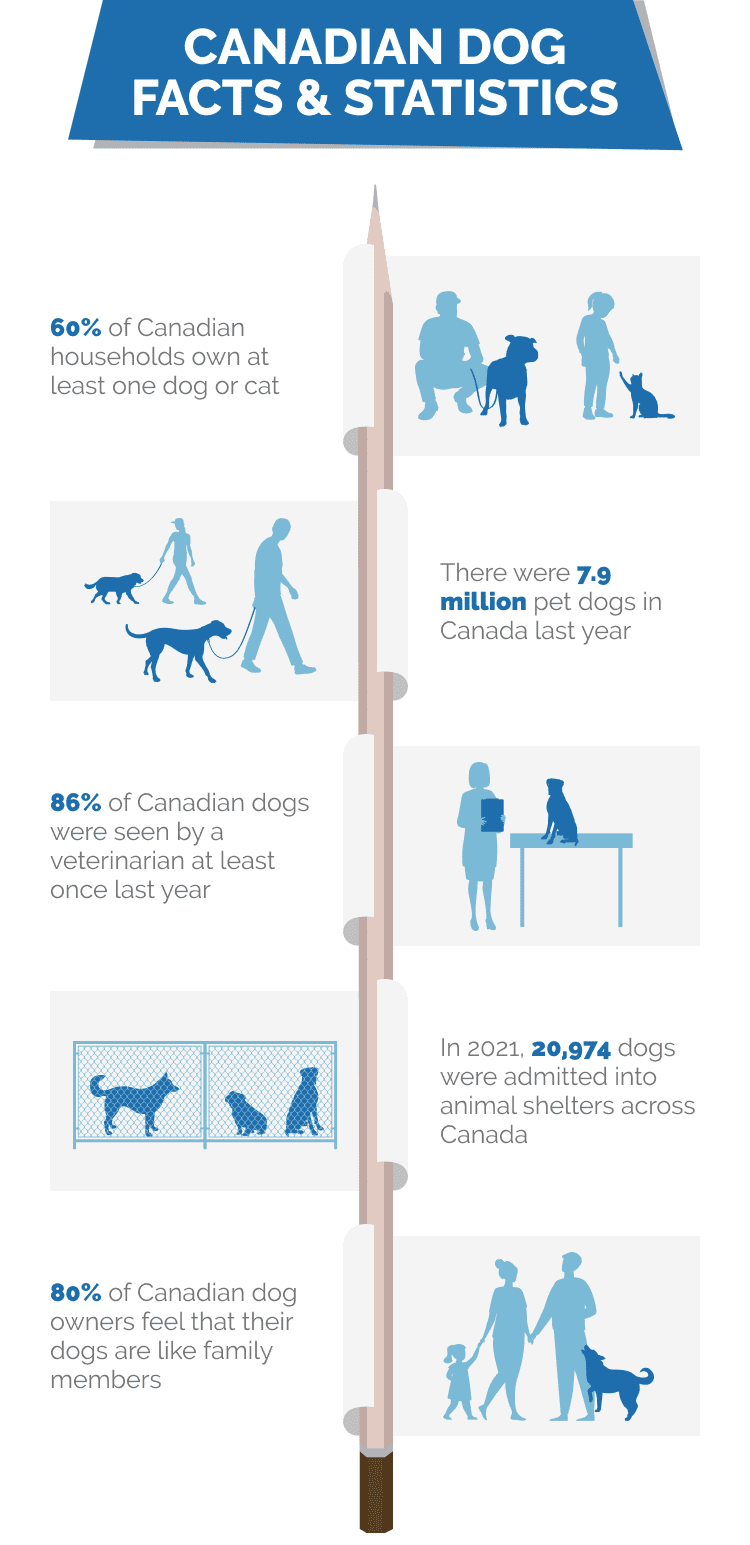
Dog Population in Canada
1. There were 28.05 million pets in Canada in 2021, which is projected to be 28.51 million by 2025.
(Statista)
These pets include dogs, cats, fish, reptiles, and small mammals. The number of pets has been steadily increasing since 2016, when there were 27.47 million pets in Canada. This means there will be 1.03 million more pets in 11 years.

2. The province with the most pets in 2021 was Quebec; 65% of the population are pet owners.
(Statista)
Atlantic Canada came in second with 64% pet owners, followed by Ontario at 56%, British Columbia at 49%, and Saskatchewan and Manitoba at 47%.
3. 60% of Canadian households owned at least one dog or cat in 2022.
(CAHI)
The increase in dog and cat ownership has consistently risen, particularly during the COVID-19 pandemic. The most significant rise in numbers occurred from 2020 to 2022.

4. There were 7.9 million pet dogs in Canada in 2022.
(Statista)
This number is up by 200,000 from 2021, when there were 7.7 million dogs in Canadian households. But in the case of Canada, the cats actually outnumber the dogs, with 8.5 million cats in Canadian homes.
Cost of Dog Ownership in Canada
5. Canadian dog owners spent an average of $3,999 in 2022.
(Statista)
The most significant expense for dog owners was dog food, which came to $1,200 in 2022. Following this, the second greatest expense was pet insurance at $1,160, and the third was dental cleaning at $743. Other research indicates that the cost of owning a dog in Canada has risen 23.3% in the last three years. Of course, how much a dog owner ends up paying depends on personal choices, the dog, and their location.

6. The estimated average cost of owning a puppy was $4,589 to $4,666 in 2020.
(OVMA)
The biggest expense is pet insurance at $1,097, followed by food at $940, and in third is the neuter or spay procedure, which might be $760 to $838.
Healthcare for Dogs Statistics
7. 86% of dogs were seen by a veterinarian at least once in 2022.
(CAHI)
The number of dogs being taken to the vet annually has slightly increased over the years. However, one in five dog owners needed or wanted preventative care for their pets in 2021 but weren’t able to access veterinary care because it wasn’t affordable or they couldn’t book an appointment.
Canada has a shortage of veterinarians, and in some areas, pet owners don’t have access to medical care for their pets.

8. There were 1,265 vacancies for veterinarians in Canada in 2022.
(Statistics Canada)
The vacancies are up from the previous year by 18.8%. There were also 1,325 job vacancies for animal health technologists and veterinary technicians.
9. Three in five Canadians who have taken their dog to the vet feel that it’s too expensive.
(Angus Reid)
These visits include routine exams, dental procedures, medical issues, and emergency visits. But only 16% of Canadians use pet insurance, which could help mitigate the expense of a veterinarian.

How Dogs Are Viewed by Their Owners
10. 71% of pet owners feel that their pets are family members.
(Angus Reid)
Only 6% stated that they weren’t that close to their pets. Additionally, pet owners aged 35 to 54 and those who identified as male were less likely to claim that they felt “very close” to their pets.
11. 80% of dog owners feel that their dogs are like family members.
(Angus Reid)
To expand on the previous statistic, dog owners had the strongest numbers for feeling close to their pets. About 68% of cat owners felt close to their cats, and the remaining 57% came from owners of other pets, including reptiles, small mammals, and fish.

12. 95% of pet owners feel that their pet has a positive impact on their mental health.
(National Post)
In the same survey, 93% of owners feel that their pet makes them healthier and happier, and 91% have felt less lonely when in isolation. About 84% of pet owners feel that their pet has a positive impact on their physical health. The majority of the 84% is likely dog owners.
Animal Shelter Statistics
13. In 2021, 20,974 dogs were admitted into animal shelters across Canada.
(Humane Canada)
This number is up by 735 dogs from 2020 but has been increasingly smaller since 1993, when there were 102,132 dogs admitted into animal shelters.
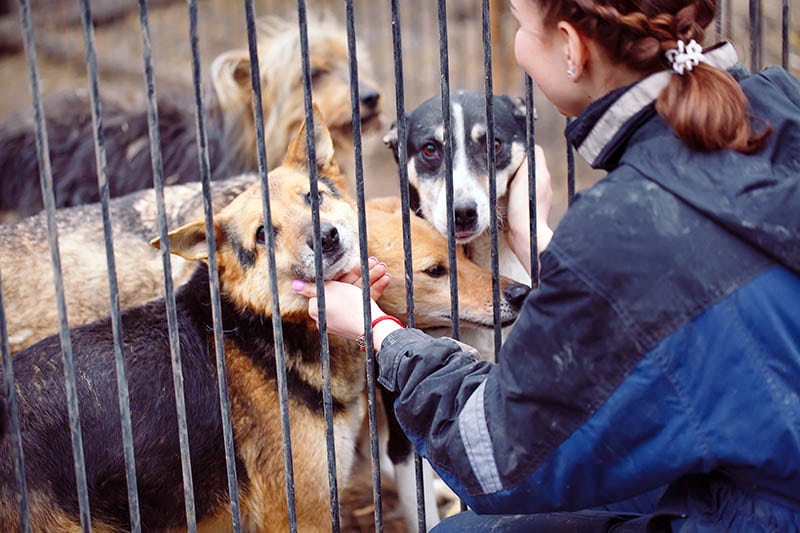
14. In 2021, 11% of shelter dogs were euthanized.
(Humane Canada)
Of the 20,974 dogs admitted, other than the 11% euthanized, another 33% were reclaimed by their owners, and 46% were adopted. As unfortunate as the euthanization numbers are, they are also at a historic low.
15. 15% of pets surrendered to an animal shelter were due to owners not being able to afford the veterinary bills.
(Humane Canada)
A large urban shelter found that half of the owners who surrendered their pets did so due to the cost of veterinary care.

Frequently Asked Questions
What Are the Most Popular Breeds of Dogs in Canada?
The German Shepherd is popular in Quebec and in Newfoundland and Labrador. The Golden Retriever is super popular in British Columbia, and the Labrador Retriever is popular throughout Alberta, Saskatchewan, Manitoba, Ontario, New Brunswick, Nova Scotia, and P.E.I. That said, P.E.I. had a tie with the Lab and the only small dog on the list, the Shih Tzu. (Just Raw)
Are There Any Dog Breeds Native to Canada?
Nine dog breeds originated in Canada. The most well-known and popular breed found around the world is the Labrador Retriever, which of course, came from Labrador.
Newfoundland gave us the Newfoundland dog, and Nova Scotia provided the Nova Scotia Duck Tolling dog. There are also the lesser-known Labrador Husky, Landseer, and Seppala Siberian Sleddog.
The Canadian Inuit dog used to be known as the Canadian Eskimo dog but had their name officially changed by the Government of Nunavut. There are also the Tahltan Bear Dog, Hare Indian Dog, and Salish Woolly Dog, but unfortunately, all of them are extinct. (Canadian Encyclopedia)

What Provinces Have More Dogs Than Cats?
The prairie provinces, B.C., and Northern Canada all have more dogs than cats, while Quebec has more cats. Atlantic Canada and Ontario are almost evenly split between dogs and cats. (Cision)
Why Are Dogs More Expensive to Care for Than Cats?
Many things drive up the cost of dog ownership. Most dogs are bigger than cats, and the fact that they all must go outside for exercise puts them at greater risk for injuries and illnesses. There’s also the amount of dog food that the bigger breeds need.
That said, certain small dog breeds might end up costing you less than certain cat breeds.
Conclusion
There’s no doubt that Canada loves its dogs and has contributed substantially to the world with several unique and popular dog breeds.
Whether you’re considering bringing home a dog or already have one, you’ve learned so much about dogs, from how many are in this vast country and how much it might cost to take care of one.
Most dog owners will tell you that they are worth every cent. However, be sure you’ve done the number crunching to ensure that you can take care of a dog financially, physically, and mentally.
Featured Image Credit: Tatyana Vyc, Shutterstock



